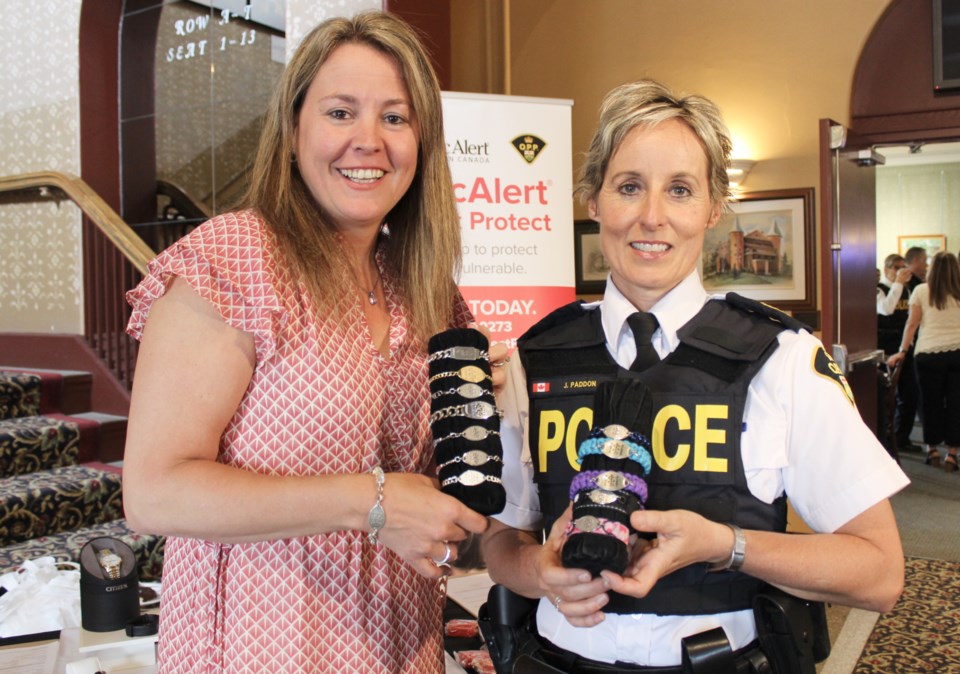A new partnership will help emergency services when it comes to locating and interacting with vulnerable people.
The OPP has teamed up with MedicAlert Foundation Canada and is encouraging people to register loved ones who might benefit from the service.
The partnership was officially launched Tuesday during an event at the Orillia Opera House.
Some detachments had their own systems for storing information about vulnerable people, but working with MedicAlert allows police across the province to access a more comprehensive database, explained OPP Staff Sgt. Julie Paddon.
“We needed to make the service more far reaching,” she said.
When people are subscribed to MedicAlert, details such as photos, descriptions, medical conditions and “wandering history” are stored in the system. Subscribers are asked if it’s OK for their information to be shared with emergency personnel in the event of an emergency.
Wandering, which is common among those with forms of dementia, is one of the main issues MedicAlert deals with, having received almost 650 calls last year. However, it has also proven useful to officers when they are dealing with people with various cognitive challenges and mental illnesses. Some people might appear impaired by alcohol or drugs when that isn’t the case. Information obtained through MedicAlert can better prepare police for the situation to which they’re responding.
“This prepares police with all the information that we need, really, to get a better outcome for police and the subscriber,” Paddon said.
When people think about MedicAlert, a bracelet typically comes to mind, but there are more options available. MedicAlert held a focus group with parents of children with autism, who said their kids might not react well to a bracelet. So, MedicAlert developed tags that can be affixed to glasses, shoes or other attire.
Subscribers’ information will be stored on a MedicAlert database rather than one managed by police. That was important to MedicAlert because it adds a level of trust, said Catherine Horlock, the foundation’s director of customer experience and strategic alliances.
“For almost 60 years, that’s been MedicAlert’s business,” she said. “It’s important for us because we develop relationships with our subscribers.”
A MedicAlert subscription costs $60 per year, plus the cost of the bracelet or tag. There are options available for those who cannot afford it, Horlock said, encouraging people to contact MedicAlert for details.
More information about MedicAlert can be found here.
Details about the OPP/MedicAlert partnership are available here.
